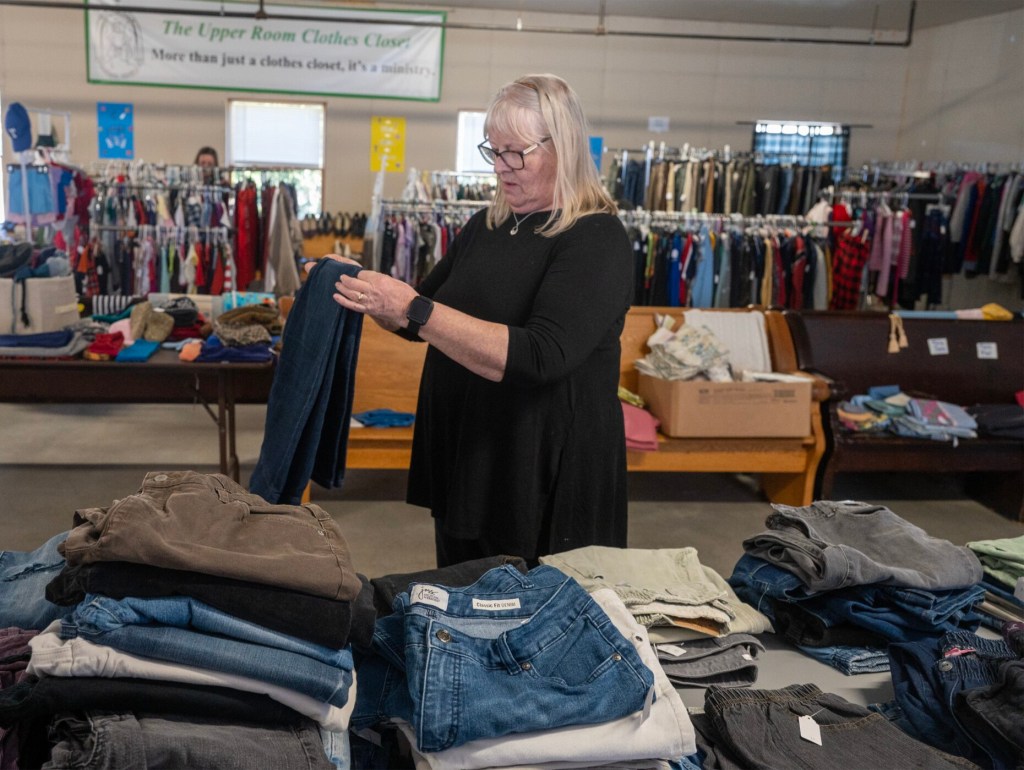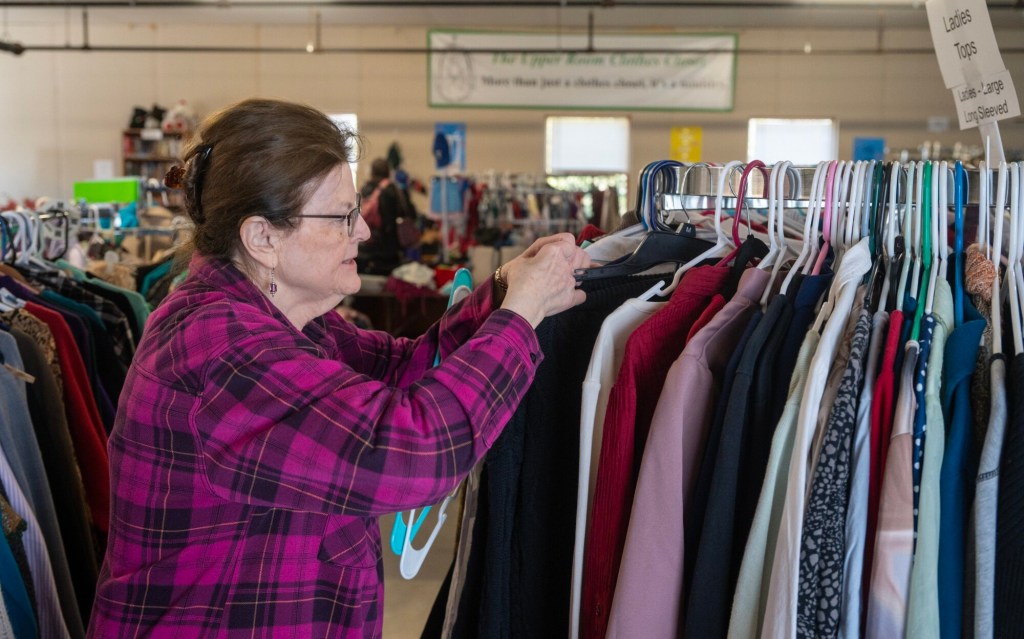AUGUSTA — The Green Street United Methodist Church, host to countless weddings, prayers, free community meals and Sunday services since 1828, is for sale.
But, members believe, the congregation will continue without its landmark property.

And they hope that property will, following in the community spirit embodied by the church for so many years, be purchased by an organization that would use it to help people who are unhoused.
The original sanctuary of the church at 13-15 Green St. was built in 1828, 21 years before Augusta was chartered as a city and only eight years after Maine became a state.
Church leaders said the congregation, like in many other churches, has gotten so small its members both no longer need such a spacious building, and also can’t afford to maintain that much infrastructure.
The Rev. Karen Munson, pastor of the church, said Sunday services now draw around 35 people, from a congregation of around 300 members, but most of those 300 either now live out of state or are too elderly to be able to attend services. Two decades ago, around the time the original church property had a large addition built onto it, the church drew around 150 people to worship at its peak.
Munson said the congregation made the difficult decision to sell the church after working with a consultant and realizing that, by the end of 2025, they would no longer have the financial capacity, or enough people, to keep going at that site.
“We’re an older congregation now, one that’s gotten very small for that property,” said Munson, who also serves as pastor at Dresden Richmond United Methodist Church. “It’s a beautiful facility, it has been kept up very well and is in great shape, but they recognized it’s way more than they need or can take care of.”
Munson said as long as they can sell the church property by 2025, the church ministry will continue, at another, to-be-determined location.
“It’s not like the congregation itself is dying,” she said. “The congregation is saying we can move and right-size our space so we can continue as a vital worshipping community.”
But if the group can’t sell the property in some two years, Munson said the congregation would close down, because it wouldn’t have sufficient funds to keep going, and the property would go to the Methodist Church’s regional body.
It’s listed with an asking price of $985,000.

The congregation of Green Street United Methodist Church in Augusta is seeking to sell its facility, which dates to 1828. The church, seen March 30, would like to move to a smaller space if it can sell the building, which is listed at $985,000. Joe Phelan/Kennebec Journal
And the congregation’s direction to the real estate broker looking to sell it for them, Kevin Judkins of Rizzo Mattson Realtors , is to work specifically with the purpose of finding groups or organizations who would use the building to provide services to people who are unhoused.
“They want it to go to a group working for the homeless community. They had a feeling that’d be a very fitting purpose for the building,” said Judkins, who is also a city councilor in Augusta. “They’ve been good stewards and would like to see it still serve the community in that way.”
He said he’s already had some discussions about the property with service providers in the area that run programs for people experiencing homelessness, and there is interest in the property.
While the historic sanctuary was built in 1828, a major, three-story addition was added in the early 2000s, which Judkins said was built to modern standards and codes and includes a sprinkler system and an elevator accessible by people with disabilities. After that expansion, the older section of the facility was also updated with an extensive interior renovation, with a sprinkler system installed there, too.
Though the property is not taxed because it is owned by a nonprofit, the city has assessed its value at just over $1.1 million.
Elsie Ware and her husband, Lee, were married in the church 58 years ago, on Oct. 6, 1965, and their two now-adult children grew up in the church. She remains active in the church and is confident it will continue into the future, even without its beloved home.

Jan Corcoran, left, Brin Amberlee, and Connie Hanson sing a hymn during Thanksgiving dinner in November 2007 at the Green Street United Methodist Church in Augusta. The volunteers served around 300 dinners either there or sent out as deliveries. Joe Phelan/Kennebec Journal file
“We’re still going to have a Green Street, just not right there. There will always be a Green Street,” said Ware, who volunteers weekly in the church’s clothing bank. “I don’t want to do it, but we just can’t support it anymore. There are too few going now.”
The Wares’ son and daughter, who attended Sunday school there, are still church members but cannot attend because they live out of state.
She said she has stuck with the church through so many years, and many different ministers, because she loves it, and its people. She reminisced that the church was well known for many years for its work helping in the community, providing, for example, free Thanksgiving dinners annually for some three decades.
“This is a congregation that has always been committed to the wider community and their neighborhood,” Munson said. “They’re hoping the building itself will find a new use for the community. And the congregation is very committed to continuing to do work in the community. It’s such a deep part of their identity and purpose.”
According to James North’s 1870 “History of Augusta,” Methodists first built a “neat and well constructed building” that was “pleasantly situated” on Green Street in November 1828. By 1829 the church had 136 members. By 1848 the congregation had grown to more than 300, prompting one of multiple expansions that would follow, this one done by separating the building into two parts and adding a new section, which accommodated an additional 20 pews.
The church will continue to host services while it is for sale.
Munson, who previously served as a district superintendent for the United Methodist Church, overseeing about 70 churches in central and southern Maine, said Green Street is facing the same challenges as many other churches. That is, declining membership, exacerbated in recent years by the pandemic. She said the demographic trend of declining church membership is especially acute in New England.
A 2022 Pew Research Center report indicated that in the early 1990s about 90% of adults in this country identified as Christians, while, today, only about two-thirds identify as Christians. The report attributes the change largely to many adults leaving the religions they were raised in to instead have no religious affiliation.
Also, a 2020 Gallup report showed 47% of Americans belonged to a church, synagogue or mosque, the first time that number fell below 50%. That was down from 50% in 2018, 70% in 1999, and 73% when Gallup first measured that statistic in 1937.
Send questions/comments to the editors.










